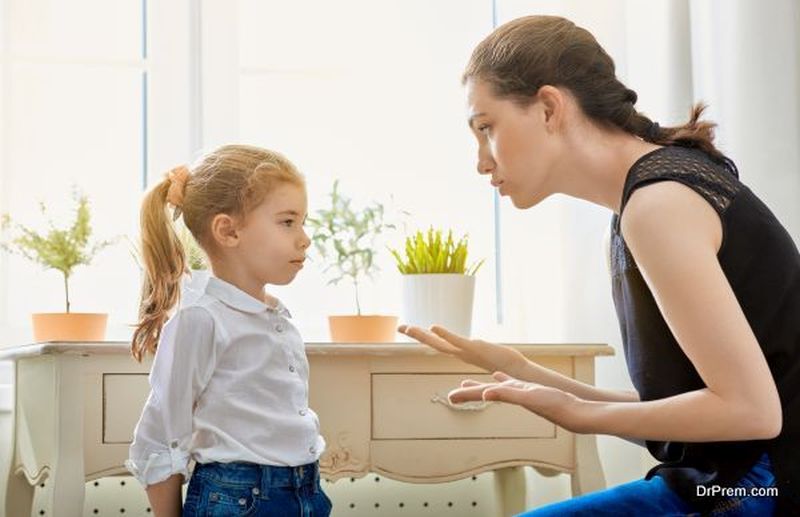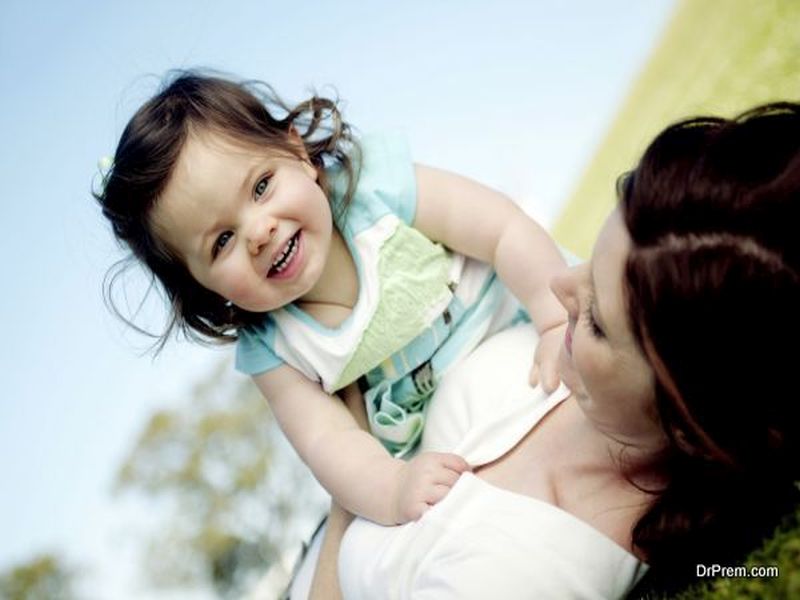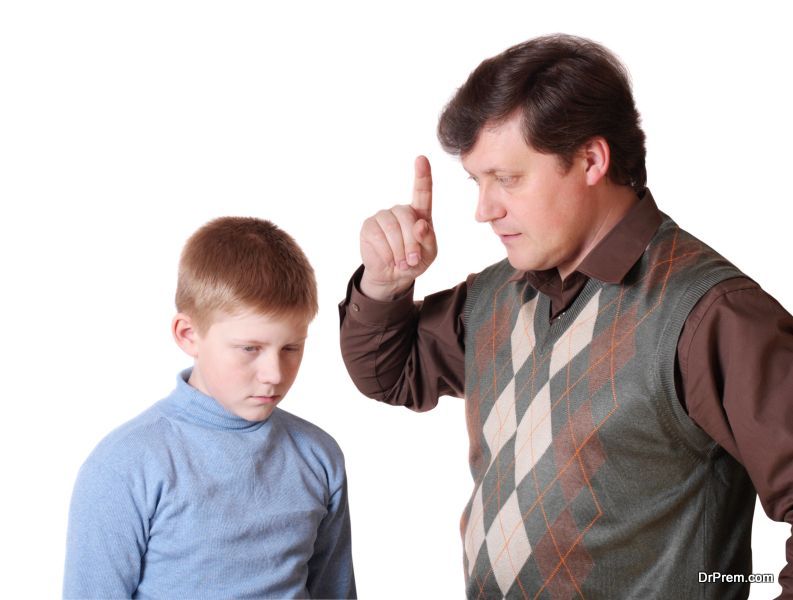A violent behavior experienced at some later age in life is most often linked with childhood. Ensure your kid is raised into a fine human being with no violence tendencies by following these 6 simple parenting tips. 6 Parenting Tips to Ensure Raising a Nonviolent Child
Avoid fighting and/or using bad language in front of your kid
 Children are not likely to learn what they are told but what they see and experience themselves. Fighting with your spouse (or someone) and/or using bad language in front of your children will surely have a negative effect on them. Some events may leave a strong impact that may badly affect your child’s psyche in the later years.
Children are not likely to learn what they are told but what they see and experience themselves. Fighting with your spouse (or someone) and/or using bad language in front of your children will surely have a negative effect on them. Some events may leave a strong impact that may badly affect your child’s psyche in the later years.
Educating your kid with coping strategies and conflict-resolution techniques
 The violent outburst is a result of the absence of the ability to cope with a particular situation. It is also an inability to resolve a conflicting situation. Equipping your child with coping strategies and conflict-resolution tactics might help them to avoid violence later. Nonviolent behavioral techniques can be tricky; but, if it is done right, you can see a big difference.
The violent outburst is a result of the absence of the ability to cope with a particular situation. It is also an inability to resolve a conflicting situation. Equipping your child with coping strategies and conflict-resolution tactics might help them to avoid violence later. Nonviolent behavioral techniques can be tricky; but, if it is done right, you can see a big difference.
Filtering TV content for your junior
 TV is a great way for children to learn things. However, some TV content can have negative impact on them. Many independent types of research carried out throughout the world have suggested that there is a definite link between watching violence on the TV (and video games) and resorting to it in the real life. Therefore, to avoid your children from exhibiting a violent behavioral pattern you need to carefully select what TV content should they watch and enjoy.
TV is a great way for children to learn things. However, some TV content can have negative impact on them. Many independent types of research carried out throughout the world have suggested that there is a definite link between watching violence on the TV (and video games) and resorting to it in the real life. Therefore, to avoid your children from exhibiting a violent behavioral pattern you need to carefully select what TV content should they watch and enjoy.
Teach Anger Management Lessons
 Anger is an undesirable emotion that can only get worse over time, if left untamed. The relation between anger and violence is obvious. While just, like every other emotion, anger is also natural and a part of human psyche, its results can be controlled. Therefore, you might need to give some anger management tips to your junior to help to control the violent outburst. This will not only help your child to control his/her anger; however it will help him/her to be Nonviolent.
Anger is an undesirable emotion that can only get worse over time, if left untamed. The relation between anger and violence is obvious. While just, like every other emotion, anger is also natural and a part of human psyche, its results can be controlled. Therefore, you might need to give some anger management tips to your junior to help to control the violent outburst. This will not only help your child to control his/her anger; however it will help him/her to be Nonviolent.
Spend Some Quality Time
 During the formative years of your child, you need to be present with her. It does not mean that you should do everything for her or give her everything that she desires. Before entering adolescence, children have a deep bonding with their parents and want to share things with them. Missing these times can fill the child with negative emotions like anger and loneliness, which can later sprout in the form of a violent behavior.
During the formative years of your child, you need to be present with her. It does not mean that you should do everything for her or give her everything that she desires. Before entering adolescence, children have a deep bonding with their parents and want to share things with them. Missing these times can fill the child with negative emotions like anger and loneliness, which can later sprout in the form of a violent behavior.
Teaching the Worth of Every Soul
 Despite being distinctly different outwards, every human being is unique in its own. This means that no human can completely replace any other human. Hence, every individual is a subject of appreciation and respect. Every person has its own role in the divine existence.
Despite being distinctly different outwards, every human being is unique in its own. This means that no human can completely replace any other human. Hence, every individual is a subject of appreciation and respect. Every person has its own role in the divine existence.
Reading between the Lines Can Make a Difference in the Approaches Used For Parenting
Parenting can sometimes be a hard task since understanding what is going through their minds can be problematic. Kids can have lots of emotions and their tender age may prevent them from understanding them. Parents can play an active role in the little ones’ ability to recognize, understand, and express their feelings.
Don’t hide your feelings from children
 To teach kids about how to handle their emotions, the first thing you need to do is discuss your own feelings with them. The feelings can be a happy one, sad one, or even a frustrating one. However, seeing their parent’s emotions can help them to understand their own.
To teach kids about how to handle their emotions, the first thing you need to do is discuss your own feelings with them. The feelings can be a happy one, sad one, or even a frustrating one. However, seeing their parent’s emotions can help them to understand their own.
Make children understand and tag their feelings
Asking children about their feelings toward something can make them realize that those feelings are natural and important. Moreover it also shows that that you care about those emotions. Understand what your child is actually trying to say and label his feelings like say “I know you are angry to lose out to your friend in a school race.” This will equally help you to bring up a Nonviolent child.
Never scold them for expressing their emotions
Telling them “Are you mad?” or “Stop whining!” will make them feel as if these emotions of anger or sadness are wrong and should be concealed. Forcing them to stuff their emotions can lead to major issues in future. Instead, you should teach them how to express those feelings like by saying, “Don’t be so mad” or “I can understand you are sad but you don’t need to cry for that.”
Treat children’s emotions based on their personality
Some children may be very emotional and easily show their outburst while others may try to keep emotions to themselves. You must learn to understand their personality and treat them according to it. Moreover, you must explain the latter to control their passionate emotions while encourage the former to share their feelings without being afraid. Along with that, you also need to be careful while dealing with a child who finds it difficult to express his feeling. This is because there is a tendency of them turning violent. Tell them it is ok to voice out their thoughts instead of being violent or submissive.
Teach them how to amend their mistakes
 To raise a Nonviolent child, amending their mistakes is a must. You should make them understand that owning up one’s mistake and apologizing is not a bad thing. They will learn this thing quickly if you discuss with them about certain incidents where you could have handled things differently.
To raise a Nonviolent child, amending their mistakes is a must. You should make them understand that owning up one’s mistake and apologizing is not a bad thing. They will learn this thing quickly if you discuss with them about certain incidents where you could have handled things differently.
Summary
Violence only attracts violence. Therefore, make sure to teach your children these things to avoid the negative outcome at all costs. Not drawing quick conclusions to children’s emotions and getting kids to express themselves is the key to a healthy relationship between parents and children. Encouraging them to talk about their feelings enhances their ability to understand and deal with their feelings themselves. Becoming friends with the children not only makes the job of parenting easier but also enjoyable.



